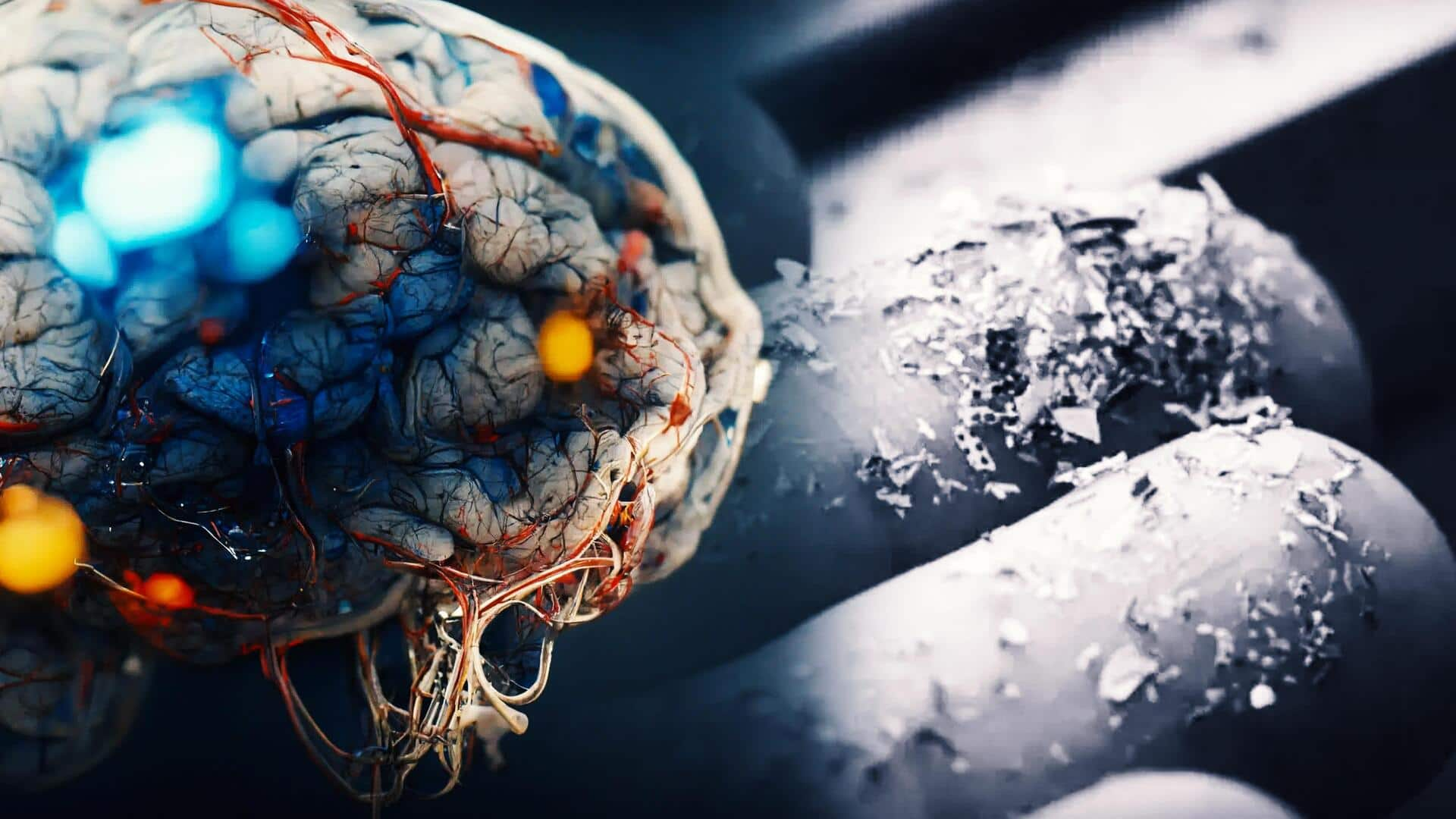
Microplastics found in human brains: Researchers call for global emergency
What's the story
The extensive use of plastic has led to a significant environmental crisis, with microplastics now detected in various elements including air, water, soil, and food. Alarmingly, these tiny particles have also been discovered in human organs. A recent study revealed that brain samples contained an average of 0.5% plastic by weight. This finding underscores the severity of the microplastic pollution issue and its potential impact on human health.
Organ invasion
Microplastics detected in vital human organs
According to a report by the Guardian, scientific research indicates that microplastics are accumulating in vital human organs, including the brain. These minuscule plastic particles have been found in lungs, placentas, reproductive organs, livers, kidneys, knee and elbow joints, blood vessels as well as bone marrow. The presence of these particles in such critical areas has led researchers to urge for more immediate action against plastic pollution.
Urgent action
Call for global emergency to tackle plastic pollution
Sedat Gundogdu, a microplastics researcher at Cukurova University in Turkey, has emphasized the need for urgent action. He stated that "it is now imperative to declare a global emergency" to address plastic pollution. This call comes as humans are increasingly exposed to microplastics and the chemicals used in their production through widespread contamination of air, water, and food sources.
Brain invasion
Study reveals alarming accumulation of microplastics in brain
A study currently under peer review has revealed an alarming accumulation of microplastics in brain samples. The research, led by Matthew Campen, a toxicologist and professor of pharmaceutical sciences at the University of New Mexico, found that the brain samples contained an average of roughly 0.5% plastic by weight. "It's pretty alarming," Campen said about the findings. "There's much more plastic in our brains than I ever would have imagined or been comfortable with."